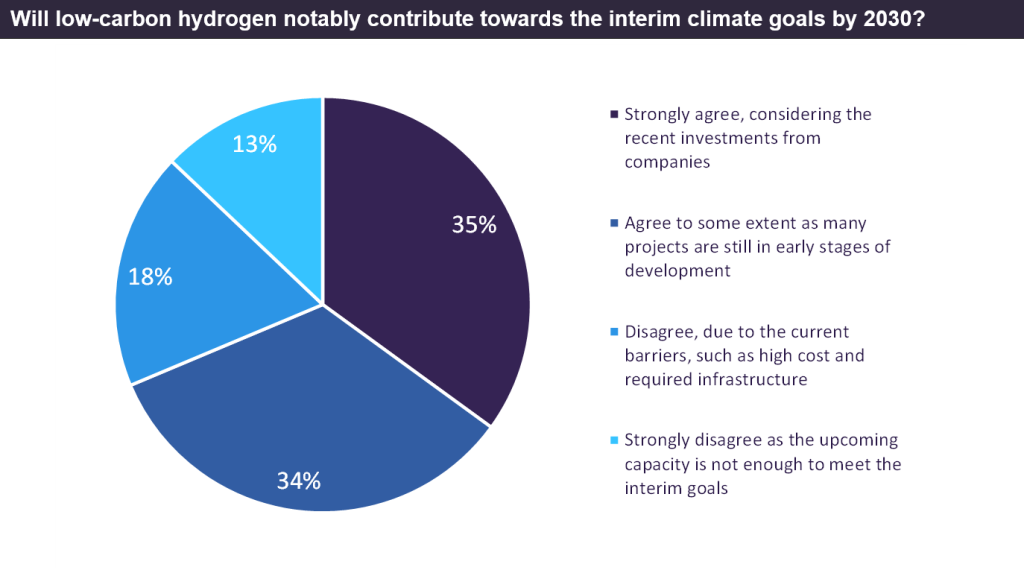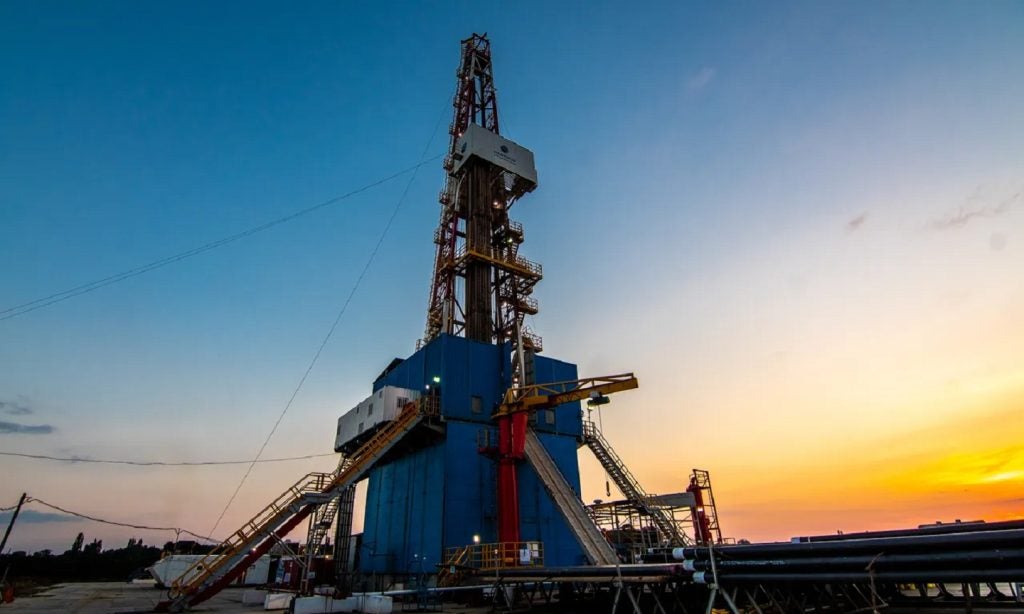The need to meet respective net-zero carbon emission targets and declining investments in fossil fuels is opening the way for low-carbon hydrogen projects. Although hydrogen energy on its own will not be enough for decarbonisation, it will be one of the enablers in this endeavour. Companies globally are working with governments to develop sustainable pathways for the production, transportation, storage, and end-use of hydrogen in diverse industries. Against this backdrop, GlobalData conducted a poll during October-November 2023 inquiring about the potential influence of low-carbon hydrogen in meeting interim net-zero goals. The poll was answered by 217 respondents who expressed diverse views on the topic, although the majority of them held a positive opinion on the role of hydrogen in industrial decarbonisation.
Around 35% of our respondents strongly agree that hydrogen will play a vital role in mitigating industrial emissions during this decade. This might be due to the fact that over 1,800 low-carbon hydrogen plants are anticipated to be online by 2030, which is the deadline that most entities have set for achieving their interim emission reduction targets. As per GlobalData, around 250 plants are currently active while nearly 1,500 are under various stages of development. It indicates a strong belief in the hydrogen economy among energy producers. The investments pledged for setting up the required infrastructure could transform the global energy landscape and tilt the balance in favour of low-carbon energy sources. A further 34% of the respondents agree on the importance of hydrogen in climate change. However, they might be somewhat sceptical as over 60% of the upcoming plants are still in the feasibility stage. High-interest rates and ongoing military operations in Ukraine and Gaza have added uncertainty to the global economic growth outlook. Amid this scenario, the is always a possibility of some of the upcoming projects getting delayed or even cancelled.
Around 18% of the respondents felt that the prevailing barriers to low-carbon hydrogen, such as high capital and lack of infrastructure could take a while to overcome. That is why hydrogen energy might not be able to make an impact on industrial decarbonisation in the medium term. Both hydrogen plants and its associated infrastructure will require considerable capital for widescale use of this energy source. The prevailing interest rates, especially in the western countries, could prevent easy access to project financing, potentially compelling companies to defer their plans.
Finally, about 13% of the respondents strongly disagreed over the influence of low-carbon hydrogen in supporting the interim carbon emission targets. There could be multiple factors behind this opinion, including the volume of low-carbon hydrogen under development that might be too small to put any dent in the global emissions.














